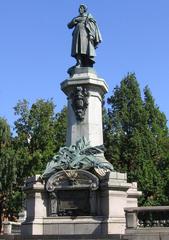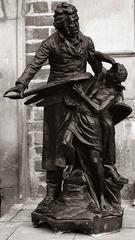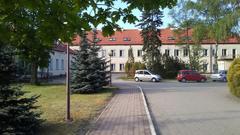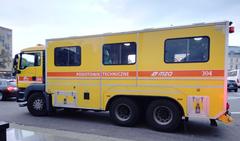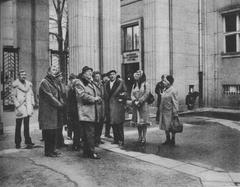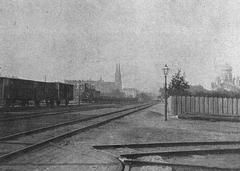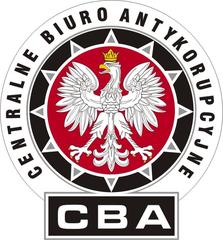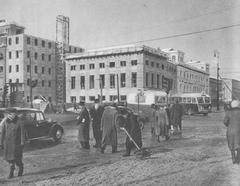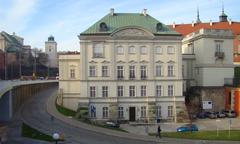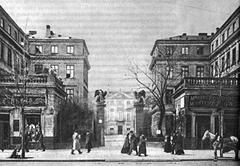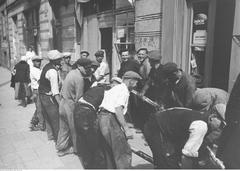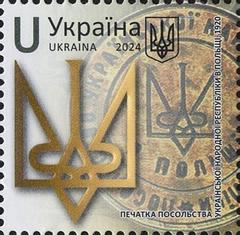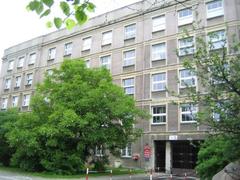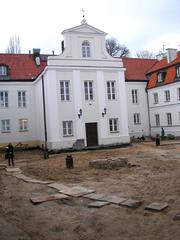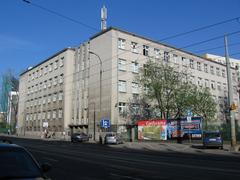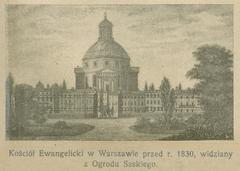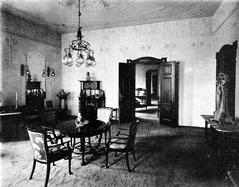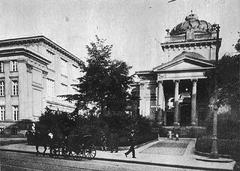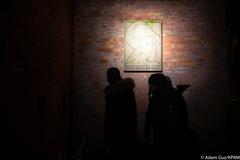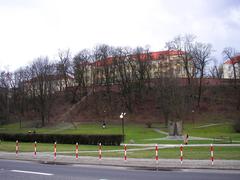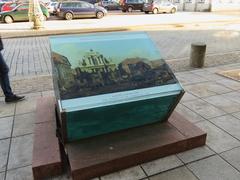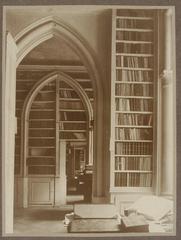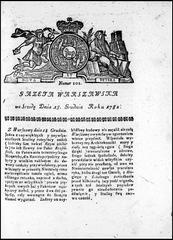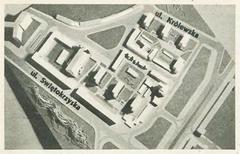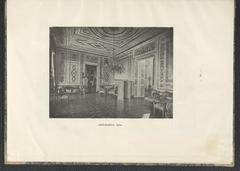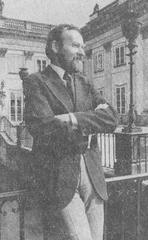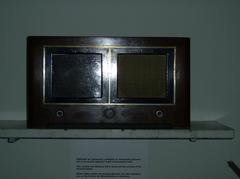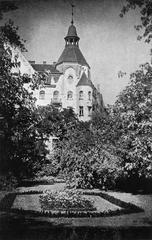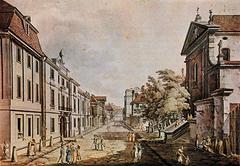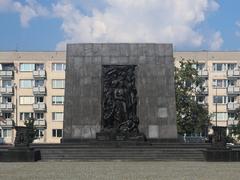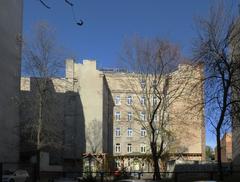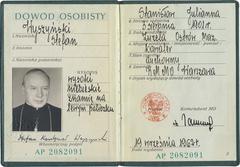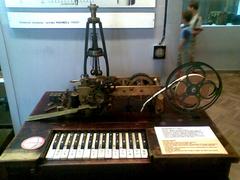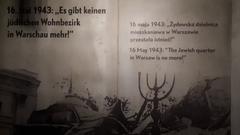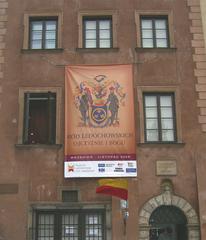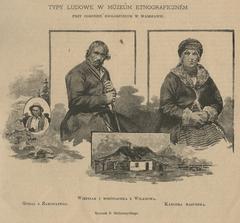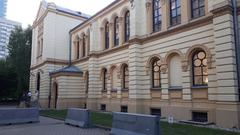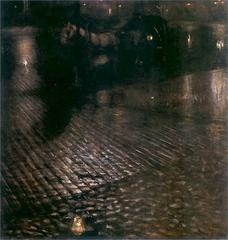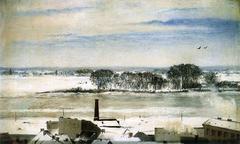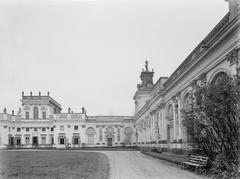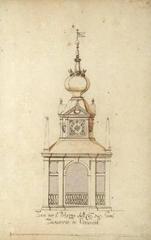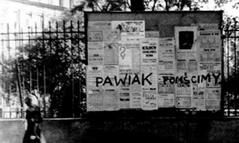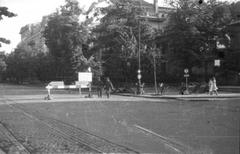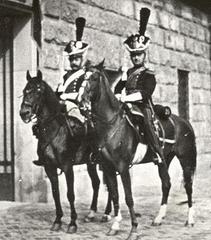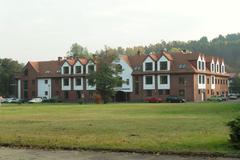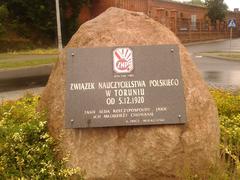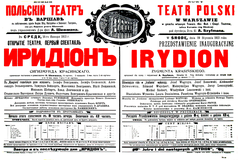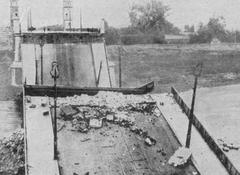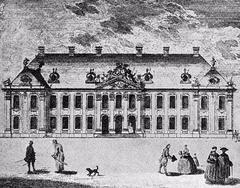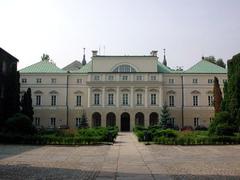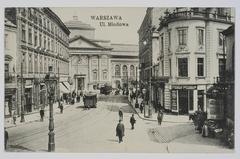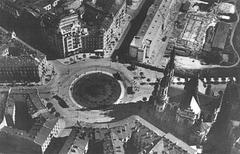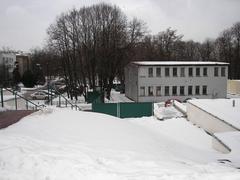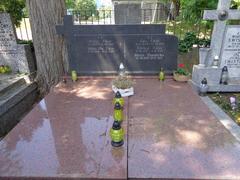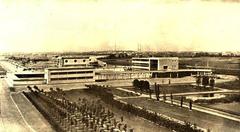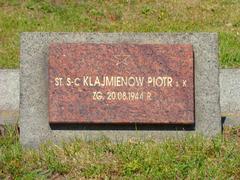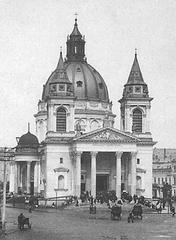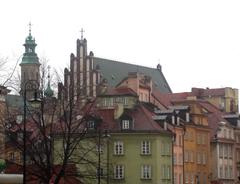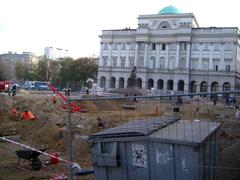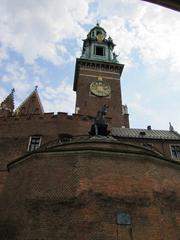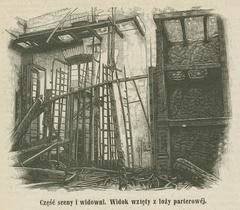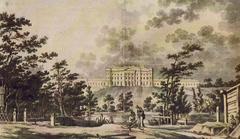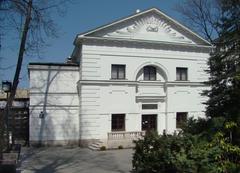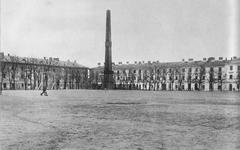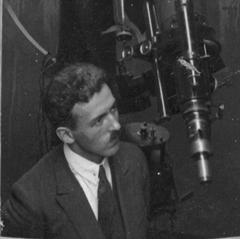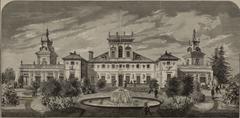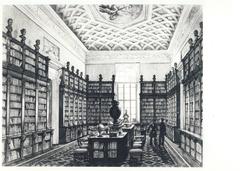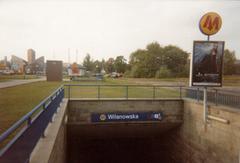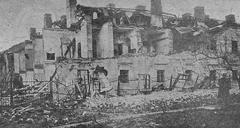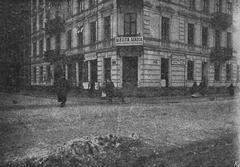
Polish Central Archives of Historical Records (AGAD) Warsaw: Visiting Hours, Tickets, and Historical Sites Guide
Date: 03/07/2025
Introduction: Exploring the Central Archives of Historical Records in Warsaw
Located in the heart of Poland’s capital, the Central Archives of Historical Records in Warsaw (Archiwum Główne Akt Dawnych, AGAD) stands as the nation’s oldest public archive and a pivotal guardian of Polish heritage. Founded in 1808 during the Enlightenment by decree of Frederick Augustus, Prince of Warsaw, AGAD was established to secure vital state and legal documents during a period of profound national transformation (AGAD official site). Today, AGAD houses over 323,900 archival units, ranging from the 12th century to the end of World War I—including royal charters, noble family archives, court records, Jewish vital records, and administrative documents from various historical periods.
AGAD’s enduring legacy is highlighted by its survival through numerous upheavals, notably the devastation of World War II and the Warsaw Uprising of 1944, after which extensive restoration efforts began (Wikipedia). Set within the historic Raczyński Palace on Długa 7 Street, AGAD is a central point for both researchers and visitors. It offers free entry to reading rooms, extensive digital resources, and proximity to some of Warsaw’s most significant cultural landmarks.
This comprehensive guide details AGAD’s history, collections, visitor information, digital resources, and travel tips to help you make the most of your visit (AGAD official website, SzukajwArchiwach Digital Archive).
Table of Contents
- Historical Overview and Significance
- Visiting AGAD: Essential Information
- Digital Resources and Online Access
- Nearby Attractions
- Travel Tips for Visitors
- Frequently Asked Questions (FAQs)
- Conclusion
- Useful Links
- Sources
Historical Overview and Significance
Founding and Development
AGAD was established in 1808 as the General Land Archives, with the aim of collecting and preserving state documents and legal records during the Enlightenment (AGAD official site). Its initial focus was on the documents of the Polish-Lithuanian Commonwealth, but it rapidly expanded to include materials from the 12th century onward, reflecting Poland’s complex history and shifting borders (Wikipedia).
Collections and Genealogical Resources
AGAD’s holdings are vast, comprising over 323,900 archival units organized into more than 480 fonds and collections (AGAD official site). Key components include:
- State and Royal Documents: Charters, decrees, and administrative records from Polish monarchs and governments.
- Noble Family Archives: Land deeds, genealogical charts, and correspondence offering insights into the lives of Polish nobility.
- Court and Tribunal Registers: Essential for legal and genealogical research.
- Jewish Vital Records: Over 4,145 registers from Galicia, crucial for Jewish genealogy (Gesher Galicia).
- Parish and Civil Registers: Baptismal, marriage, and death records—vital for tracing family history.
- Maps, Manuscripts, and Diplomatic Documents: Including treaties and foreign correspondence.
These collections provide a comprehensive overview of Poland’s political, social, and cultural evolution, attracting both scholars and amateur genealogists.
Wartime Losses and Preservation
AGAD suffered significant losses during World War II, particularly during the Warsaw Uprising, when Nazi forces destroyed much of its holdings. Remarkably, some underground vaults survived, preserving invaluable documents (Wikipedia). Post-war efforts have focused on restoration and expanding digital access to protect and share AGAD’s legacy.
Visiting AGAD: Essential Information
Location and Access
AGAD is located in the historic Raczyński Palace at ul. Długa 7, 00-263 Warsaw, within walking distance of Warsaw’s Old Town and close to major public transport lines (AGAD official website).
- Metro: Ratusz Arsenał (M1 line) is nearby.
- Tram/Bus: Multiple lines serve the area.
- Parking: Limited in the city center; public transport is recommended.
Visiting Hours and Entry
-
Reading Room Hours:
- Monday, Tuesday, Thursday, Friday: 9:00 a.m. – 3:30 p.m.
- Wednesday: 9:00 a.m. – 6:00 p.m.
- Closed: Saturdays, Sundays, and official holidays (AGAD Reading Room Hours)
-
Special Holiday Hours: Reduced hours on select holidays; always check the AGAD website before visiting.
-
Entry: Free; no tickets are required. All visitors must register at the reception desk with a valid photo ID to receive a reader’s card (AGAD Guide (PDF)).
Registration and Visitor Services
- Registration: Present a passport or national ID and fill out a registration form. First-time visitors are issued a reader’s card.
- Security: Personal items such as bags and coats must be stored in lockers.
- Permitted Items: Notebooks, pencils, and laptops are allowed; pens, food, and drinks are prohibited.
- On-site Facilities: Reading rooms, copying and scanning services (fees may apply), and research assistance from archivists.
Accessibility
- Wheelchair Access: Main entrance and elevators are accessible.
- Adapted Restrooms: Available on the ground floor.
- Special Needs: Visitors requiring assistance should contact AGAD in advance (State Archive Accessibility).
Digital Resources and Online Access
AGAD has embraced digitization, offering extensive online access via the SzukajwArchiwach portal:
- Advanced Search: Filter by date, location, or document type.
- Millions of Scanned Records: High-resolution images of original documents.
- Genealogical Databases: Integration with PRADZIAD and other resources.
- Free Access and Downloads: Most materials can be accessed and downloaded without charge.
The National Digital Archives (NAC) also complements AGAD’s resources with photographs, audio recordings, and microfilms.
Nearby Attractions
AGAD’s location makes it ideal for combining archival research with sightseeing:
- Warsaw Old Town: UNESCO World Heritage site (Insider Fandom)
- Royal Castle: A short walk from AGAD.
- Warsaw Uprising Museum: For insights into WWII history.
- Dining: Numerous cafés and restaurants are found along Długa Street and in Old Town.
Travel Tips for Visitors
- Plan Ahead: Use the SzukajwArchiwach digital archive to search documents before visiting.
- Best Times: Early mornings on weekdays are less crowded; Wednesdays offer extended hours.
- Language: Many materials are in Polish, Latin, or German—prepare research terms or bring a translation app.
- Photography: Only allowed with prior permission; copying/scanning services are available for a fee.
Frequently Asked Questions (FAQs)
Q: What are AGAD’s visiting hours?
A: Monday, Tuesday, Thursday, Friday: 9:00 a.m. – 3:30 p.m.; Wednesday: 9:00 a.m. – 6:00 p.m.; closed weekends and holidays (Reading Room Hours).
Q: Is there an entrance fee?
A: Entry is free, but registration with a valid ID is required.
Q: Are guided tours available?
A: No regular guided tours, but occasional special events—check the AGAD website for updates.
Q: How do I access digital archives?
A: Visit SzukajwArchiwach for millions of digitized records.
Q: Is AGAD wheelchair accessible?
A: Yes; for additional needs, contact AGAD in advance.
Q: Can I take photos?
A: Only with prior permission; ask at the Reading Room desk.
Conclusion
The Central Archives of Historical Records (AGAD) is an essential destination for anyone interested in Polish history, genealogy, or archival research. Its centuries-old collections, free public access, and robust digital resources make it invaluable for both scholars and casual visitors. By preparing in advance and taking advantage of AGAD’s location near Warsaw’s top cultural sites, you can enrich your understanding of Poland’s past and create a memorable visit.
For the latest information on visiting hours, digital resources, and special events, consult the AGAD official website. Enhance your experience with the Audiala app for curated tours and up-to-date insights on Warsaw’s historical sites.
Useful Links
- AGAD Official Website
- SzukajwArchiwach Digital Archive
- National Digital Archives (NAC)
- Warsaw State Archive
- Polish Genealogist Guides
Sources
- Visiting the Central Archives of Historical Records (AGAD) in Warsaw: Hours, Tickets, and Historical Insights, 2025, AGAD official site (https://agad.gov.pl/?page_id=904)
- Central Archives of Historical Records (AGAD) - Wikipedia, 2025 (https://en.wikipedia.org/wiki/Central_Archives_of_Historical_Records)
- Visiting the Polish Central Archives in Warsaw: Collections, Digital Access, and Visitor Information, 2025, Szukaj w Archiwach (https://www.szukajwarchiwach.gov.pl/)
- Visiting AGAD in Warsaw: Opening Hours, Tickets, and Tips for Exploring Poland’s Historic Archives, 2025, AGAD official website (https://agad.gov.pl/?page_id=1665)
- Central Archives of Historical Records (AGAD) Visiting Hours, Tickets, and Visitor Guide in Warsaw, 2025, State Archive in Warsaw (https://warszawa.ap.gov.pl/about-us/archival-resources/)
- Gesher Galicia
- Insider Fandom
- Polish Genealogist




